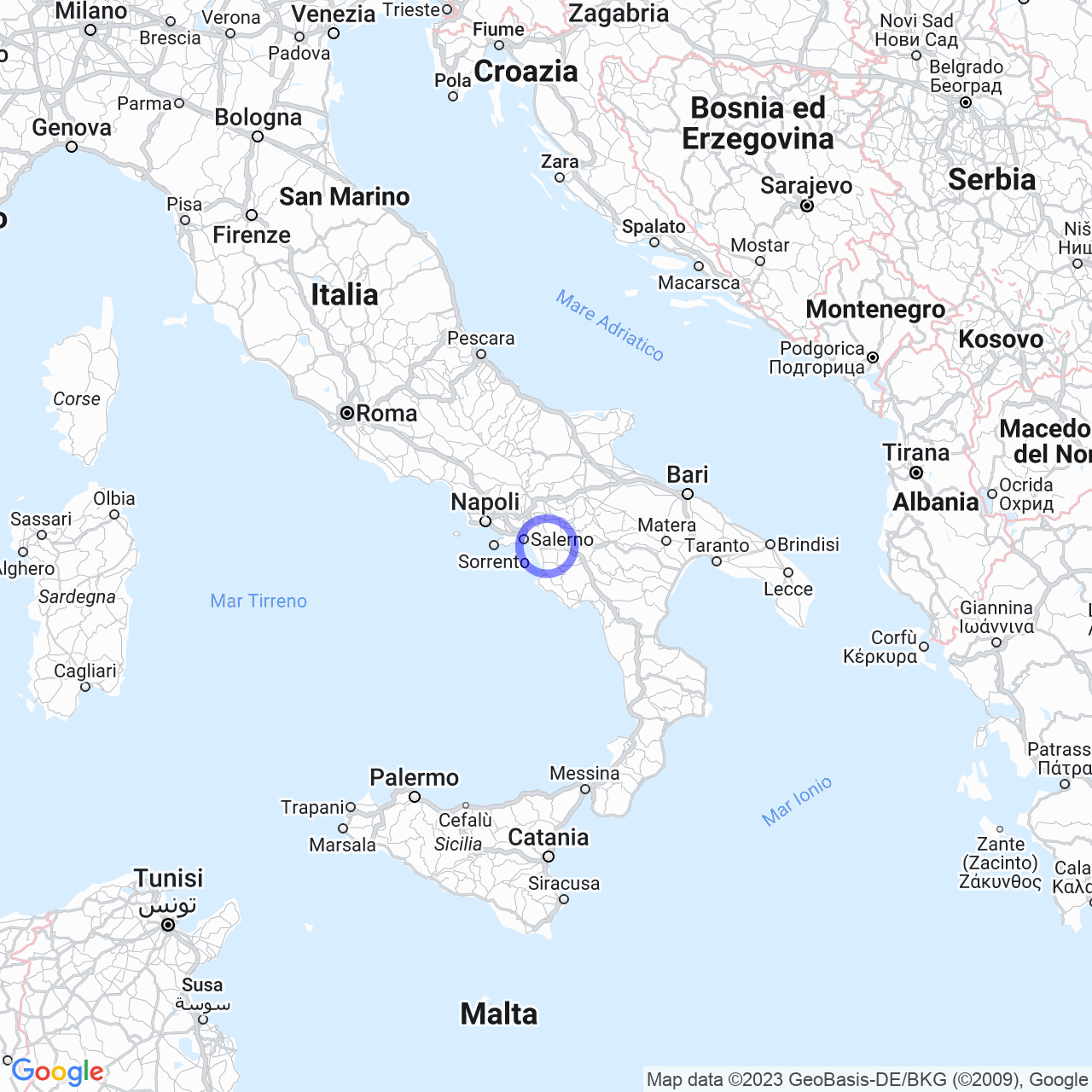Eboli
C) located near the current train station.
Over the centuries, Eboli underwent numerous dominations and conquests, from barbarian invasions to Lombard domination, to the Middle Ages when, together with the rest of Campania, it was the scene of clashes between city-states, such as Naples, Salerno, and Amalfi, and various local lords.
In 1239, during the Angevin period, the feudal lordship of Eboli was granted to the De Ruggiero family, and in 1410 it passed under the control of the Orsini Del Balzo family. In the eighteenth century, during the Bourbon period, the feudal lordship of Eboli passed to the Sanfelice family. Later, Eboli was one of the first cities to join the Neapolitan Republic in 1799, but was harshly repressed by the Sanfedista troops, supported by the Bourbons.
During the nineteenth century, with the construction of the Napoli-Salerno railway, Eboli developed significantly and became an important center for commercial exchanges. During World War II, the city suffered numerous bombings and damages but managed to reconstitute itself quickly.
Economy
The economy of Eboli is mainly based on agriculture, particularly olive cultivation, table grapes, and wine (especially Fiano di Avellino). Eboli is also an important center for textile and clothing production and processing, with numerous specialized companies in this sector.
Moreover, the presence of the railway station and proximity to the A3 motorway (Salerno-Reggio Calabria) make it an important hub for transport and logistics, with numerous transport and warehousing companies present in the municipal territory.
Culture and tourism
Eboli boasts a rich history and a valuable artistic and cultural heritage, which includes numerous monuments and places of interest. Among these are the Cathedral of San Francesco, the Church of Madonna delle Grazie, the Ducal Palace, the Archaeological Museum, and the Castle Tower.
Furthermore, the city is famous for its food and wine tradition, with numerous restaurants and trattorias offering local specialties such as buffalo mozzarella, San Marzano tomatoes, and Fiano di Avellino wine.
The surrounding area also offers numerous opportunities for nature lovers and hiking enthusiasts, with the Monti Picentini Regional Park and the natural reserves of the Sele River and Lake Serino.

Cultural and recreational events
Eboli hosts numerous cultural and recreational events throughout the year. Among these, the Festa della Madonna delle Grazie in January, the Festa di San Francesco in March, the Palio dei Norman in August, and the Fiera di San Luca in October stand out.
Moreover, the city is famous for its lively nightlife, with numerous bars and pubs offering live music and entertainment.
Conclusion
Eboli is a city rich in history, culture, and natural beauty, with an important agri-food tradition and a lively commercial activity. The surrounding territory offers numerous opportunities for nature and hiking enthusiasts, while the city itself is animated by numerous cultural and recreational events throughout the year.
With its strategic location, the presence of important communication routes, and a valuable artistic and cultural heritage, Eboli is an ideal destination for those who wish to spend a vacation based on history, culture, nature, and fun.
